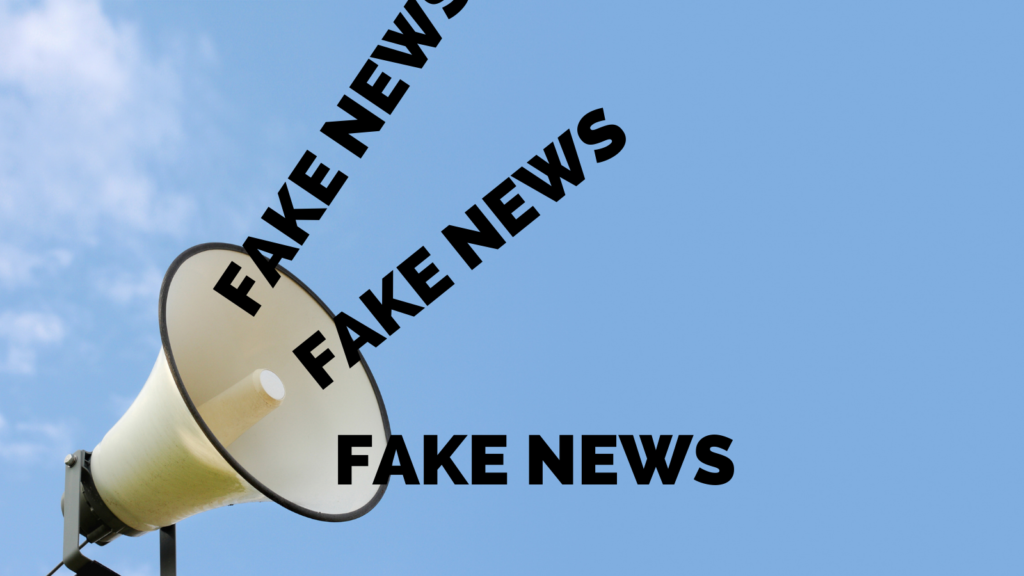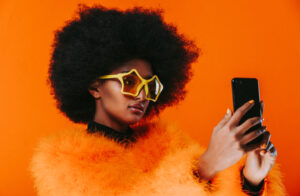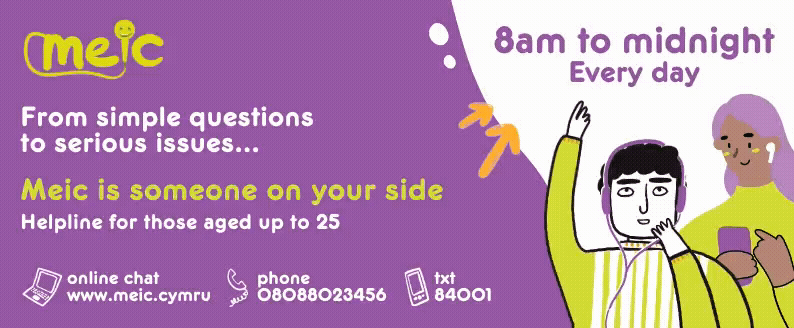What is Misinformation (Fake News)?

Misinformation, or ‘fake news’, is everywhere – in our inboxes, on our social media – you can’t get away from it. It’s important that you know how to recognise misinformation, how to research if it’s true or not and be a responsible Internet user and not share fake news. Meic is here to help.
I ddarllen yr erthygl hon yn Gymraeg, clicia yma
Misinformation is false or inaccurate information that misleads (intentionally or unintentionally). Most of us would like to think that we’ll never fall for it, but many of us probably have at some point. This could be as extreme as believing that injecting bleach will kill Covid (not true by the way – just making sure you know that!) or believing that an Instagrammer’s perfect life is really like that all the time.
There are different types of misinformation. Familiarise yourself with them so that they’re easier to spot and you can check that what you see on the Internet is real. We have another blog ‘How To Figure Out If Something Is Fake On The Internet’ if you’re not sure how to check.

Deliberate lies
Making up stories to get a person to believe in something that isn’t true. This could be to get more website visits, or to get you to believe something that’s beneficial to them. They might exaggerate things to make a story better or push a political view.
Hoaxes are deliberate lies to fool people for comedic purposes or to deceive or trick someone maliciously. Images and videos can be changed to make things look like they are true, or they might use old images or videos and pretend that it’s new, or something that it isn’t. Even videos can be faked, check out this video about Deepfakes.
Misinformation like this is common and when big things happen in the World, like the refugee crisis, Trump, Brexit etc. – fake stories pop up everywhere. Using Covid-19 as an example, it has fuelled so much fake news recently, and here’s just a few of them (remember – these aren’t real):
- Photos of tanks turning up on UK streets (even though the cars were on the wrong side of the road and they had foreign number plates)
- Covid is caused by 5G
- If you sip hot water it will kill the virus
- Hold your breath for 10 seconds, if you don’t cough you don’t have Covid
- Bill Gates is putting a microchip in the vaccine to spy on us all
- Injecting disinfectant and using UV light will kill the virus (suggested by the [former] President of the United States!!!)
- The Covid vaccine will change your DNA
The World Health Organisation is one of the best places to check what’s fact and what’s fiction when it comes to Covid-19. Check out their Mythbusters page.

Incorrect information
This isn’t done deliberately, the writer believes it to be true but they just haven’t researched it properly. Be careful when you use websites like Wikipedia or YouTube – you might think they’re a good source of information, but users submit everything. If it’s not researched properly it might not be true, or might be misleading. Vlogs and blogs are also places where opinions are presented as facts. Just because you admire or respect that person, it doesn’t mean that what they are saying is true or well researched.

Shared content
This is really common on social media. You see something being posted, and you forward it without researching whether it’s true or not. This type of misinformation can spread very quickly.
Social media can become an echo chamber. You will see common opinions being shared because of the people you’re friends with or posts that you’ve liked. This is all based on algorithms. For example, if you were pro-Brexit, and liked posts that were supportive of leaving the EU, then you would see more posts that were pro-Brexit and less of the ones that were against it. People tend to be friends with people who have the same opinion as them politically or morally, so you will have more friends that are pro-Brexit too. This means that you don’t get the full picture and all the facts.

Hackers and phishers
Beware of people trying to steal your information to hack into your other accounts. Phishers will pretend they are someone else to get access to personal information.
Never click on an attachment or URL in an email without knowing what you’re clicking. Malicious attachments and URL’s are common in spam emails – if in doubt – don’t click. Even if it looks real – like from your bank, Netflix, Amazon etc. these emails can make it look like they are from genuine companies (check the senders full e-mail address – this is usually a huge giveaway). Very often there are misspellings in these e-mails, but don’t be fooled if you can’t spot any. Try to resist opening attachments or clicking URL’s even if you think it’s a genuine e-mail. Instead, open a new tab, and log in to your bank/TV/shopping account/whatever and check if there are any messages there. If there isn’t then the e-mail is more than likely fake.

Influencers
People who portray perfect lives on social media. Their make-up is always on point, they have perfect relationships, the bestest friends, amazing holidays, perfect lives and we’re all jealous of them! It’s really important to remember that what’s portrayed on social media is not real life. People tend to share the best bits and filter out the not so glamorous parts of their lives. Check out our Is What You See On Instagram Real? blog where we look at how Instagram can deceive and how not to get sucked into it.

Further links
The websites below aim to check facts or give advice about fact checking. Check them out:
- Is What You See On Instagram Real? – Meic blog – Find yourself envious of people’s perfect lives on Instagram? Don’t let your self-esteem suffer
- How To Figure Out If Something Is Fake On The Internet – Meic blog – Tips on how to figure out if something is fake
- BBC News – Reality Check
- Channel4 news – Factcheck
- Snopes – Fact checking website
- The World Health Organsiation – Myth Busters
- Trustpilot – reviews of businesses
- Full Fact – fact checkers
- Ask For Evidence – helps you ask for evidence about health claims, news stories, ads and policies
- NewsWise Navigator – Stop Question Check Decide – A tick list to check before you share anything
- BBC Bitesize – Fact or Fake – There are loads of different articles here on how to spot fake news, finding reliable sources, quizzes, being social media smart, how algorithms and filter bubbles decide what you see on social media and lots, lots more great content.
Get help
Meic is always here to talk. If you’re feeling down or worried about anything then give us a call, text or chat to us online. We’re here to listen and to offer advice.



















